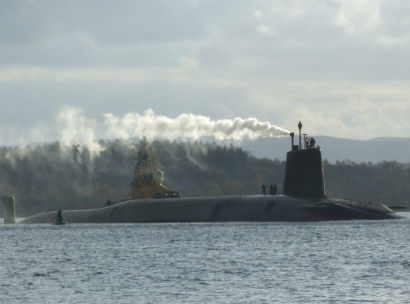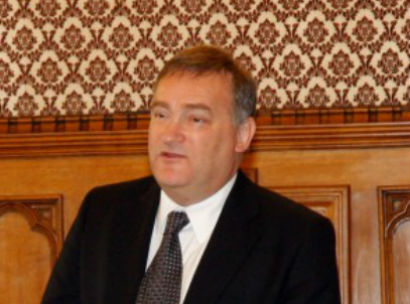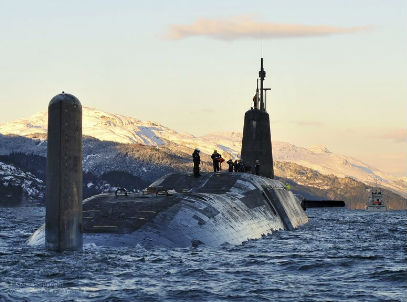
Labour’s policy review, much needed after 13 years in Government and a drubbing in May 2010, was said to have started from a blank page and would review all our commitments across the board. All, it seems, except Trident.
There has been some positive movement, the Britain in the World policy document stated there will be a discussion about Trident –
but only once the Lib Dem alternatives review has been completed. The fact that Ed Miliband welcomed the review is in itself an important step in itself. But why should Labour let the Liberal Democrats lead this debate?
At a grassroots level, this discussion is already being had. While the National Policy Forum proposal for a debate at some point in the future was presented to conference, MPs, MSPs, AMs, councillors and activists packed out the CND fringe in Manchester.
Neil Findlay MSP said spending £100 billion on renewing Trident would be “economically incompetent” and Katy Clark MP a
nd Julie Morgan AM both agreed that nuclear disarmament would be an electorally popular policy for Labour.
With the Government now pledging to spend £350 million on the next stage of Trident renewal, whilst cutting benefits from the disabled and slashing vital public services, its clear just how little economic sense nuclear weapons make. It also demonstrates that the Tories are determined to plough ahead with renewing our nuclear arsenal, regardless of Lib Dem opposition.
Labour’s lack of response to the latest announcement is remarkable and, in Scotland, the SNP are already atta
cking Johann Lamont for failing to respond when Trident’s submarines are based in Faslane.
Lamont has previously stated her opposition to Trident; saying in 1999 that she would support a motion calling for the weapons system to be decommissioned. If the party is truly to renew under Ed’s leadership then, Lamont should, as leader of Scottish Labour, be able to restate her belief in nuclear disarmament and show she’s in touch with public opinion.
The party cannot remain silent on Trident.
When even Tony Blair now admits that Trident is of no use as a strategic deterrent and itssignificance is purely political, surely Ed can admit its time to ditch this cold war relic.
The ‘Promise of Britain’ is not to deliver a future for the next generation where security is based on mutually assured destruction, it is about providing a society in which everyone has a fair chance to get on. Ed Miliband must be frank and say, in the words of the former chief whip Nick Brown, “we don’t need Trident and we can’t afford it”.ic choices in the next Parliament, there’s no way they could then go on to spend £100 billion on weapons of mass destruction that could kill millions.Scrapping Trident will send a bold signal to the world that the nuclear age needs to be put behind us and, as Nick Brown advocates, would allow the next Labour government to deliver a tuition fee cut that would re-open the doors to higher education for ordinary working class young people.
















